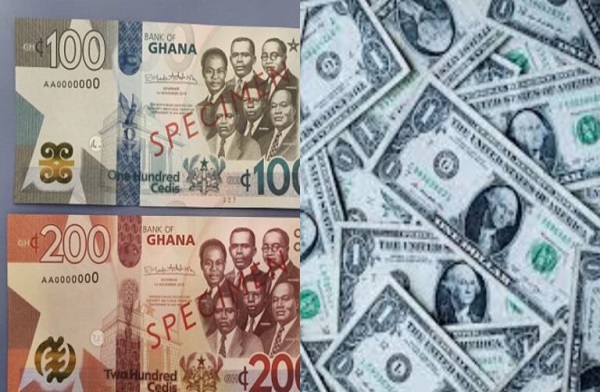The Institute for Economic Affairs (IEA) is warning that the Bank of Ghana’s intervention alone in the forex market cannot ensure lasting exchange rate stability without far-reaching reform measures.
After peaking at GH¢16.30 in October, the cedi declined to GH¢15.37 in November and further to GH¢14.70 in December.
The GHS/GBP and GHS/EUR rates followed similar patterns.
IEA said the rate decline was presumably due to stepped-up intervention by the Bank of Ghana before the 2024 election.
“In fact, by October, before the intervention, the GHS/USD had risen to GH¢16.30”, it mentioned.
“The question is whether the appreciation in the rate in November and December could be sustained. The fact is that, as indicated below, Bank of Ghana’s intervention alone cannot ensure a lasting exchange rate stability without far-reaching reform measures”, it added.
The year-to-date depreciation of the cedi against the dollar peaked at -27.1 in October 2024 before declining to -22.7% in November 2024 and further to -19.18% in December 2024.
The deprecation in 2024 followed a further depreciation of 27.8% in 2023.
Continuing, the economic think tank said the cedi has a history of chronic depreciation. This is the result of the persistent gap between foreign exchange (FX) demand and supply.
Closing the gap, it alluded, requires policies to limit FX demand and increase FX supply.
“On the FX demand side, it is necessary to actively promote domestic production of import substitutes to reduce demand for FX for imports; entrench fiscal and monetary discipline to reduce demand pressures in the economy, including demand for FX; and enforce domestic FX market regulations to reduce demand for FX”, it pointed out.
On the FX supply side, there is a need for active promotion of exports to increase supply of FX; promotion of remittances to increase supply of FX; and greater Ghanaian ownership of resources and economic assets to increase supply of FX in the economy”, it added.
It concluded that these proposals are not really new, except that “we do not seem to pay them the needed attention. This is the reason for reiterating them here”.
Latest Stories
-
APL claims vindication following IMF’s revelation of BoG’s $1.4bn forex support
4 seconds -
Inexperienced Scholarship Boss has ruined Ghana’s goodwill with foreign schools – Kofi Ofosu Nkansah
1 minute -
Essikado MP cautions: Environments that silence dissent kill growth
7 minutes -
REM youth conference expands to Ghana, strengthens Ghana-Korea ties
25 minutes -
Can the Elephant dance again?
28 minutes -
Ekumfi MP leads road inspection to boost local development
31 minutes -
NPP Delegates Conference to proceed despite petition – Osei-Owusu
34 minutes -
Krobo youth group to stage protest over abandoned Somanya–Kpong road project
36 minutes -
Mahama demands reparation for slave trade
39 minutes -
Forex market intervention for 2025 Q1 has not depleted our reserves – BoG
49 minutes -
NPP bigwigs revolt over top-down flagbearer election plan
50 minutes -
NDC yet to decide on contesting Akwatia by-election – Mustapha Gbande
56 minutes -
We’ll win Akwatia by-election – Mustapha Gbande
59 minutes -
Mahama scraps fuel allowances for all political appointees
1 hour -
South Sudan joins African Paralympic family as IPC grants provisional membership
1 hour

